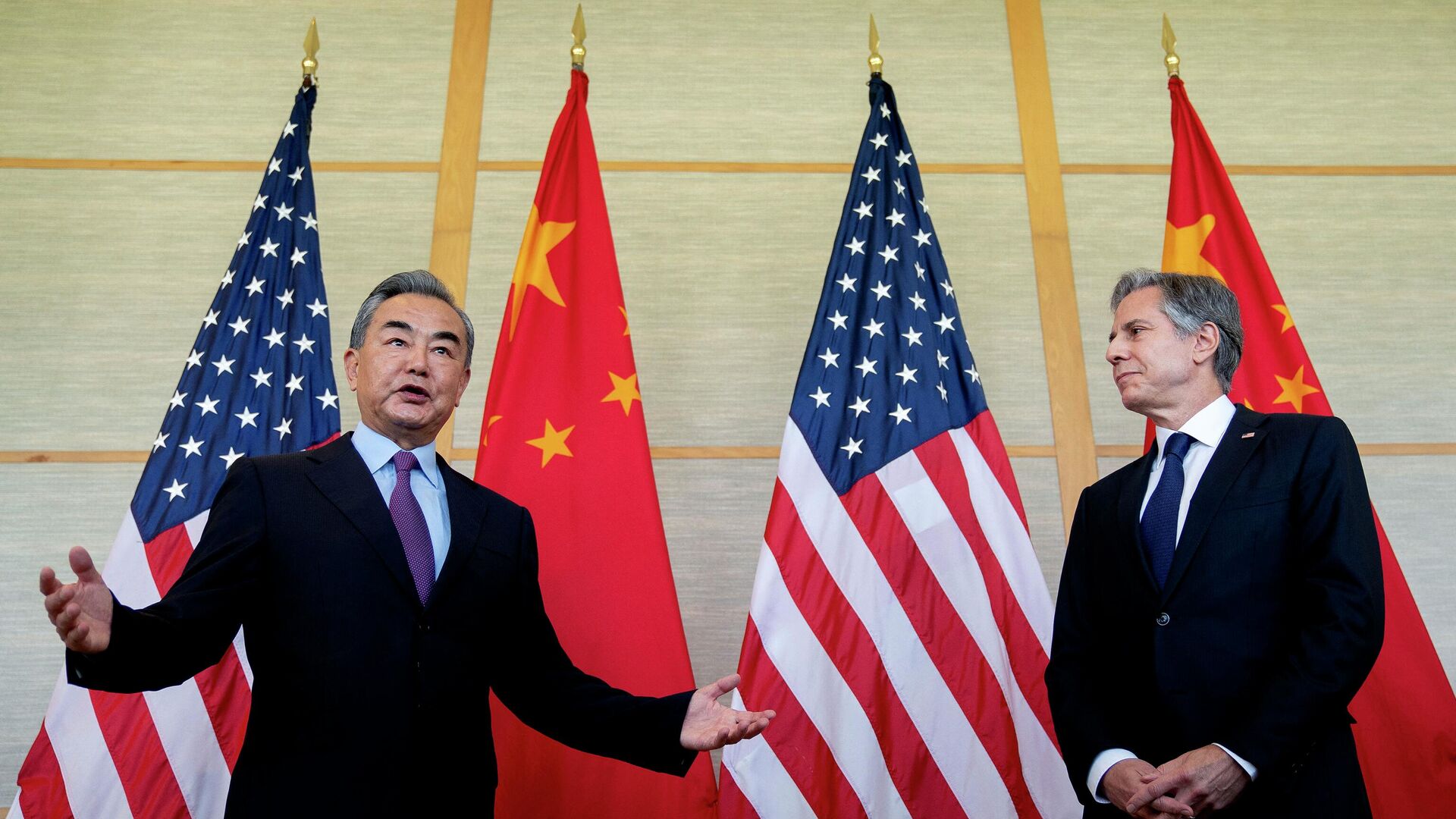Respect for Beijing's Sovereignty Over Taiwan 'Test of International Credibility' for US, China Says
18:44 GMT 11.07.2022 (Updated: 12:44 GMT 19.06.2023)
Subscribe
As part of the negotiations to normalize diplomatic relations with the People’s Republic of China in 1979, the United States accepted the “One China Principle” and recognized Beijing’s position that Taiwan is a part of China. However, it has continued to informally support Taiwan’s continued autonomy from Beijing.
Speaking at the Association of Southeast Asian Nations (ASEAN) secretariat headquarters in Indonesia’s capital of Jakarta on Monday, Chinese State Councilor and Foreign Minister Wang Yi denounced the US’ continued support for Taiwan’s autonomy from Beijing, saying it risked undoing decades of diplomacy aimed at avoiding war and the eventual peaceful reincorporation of Taiwan into China.
“History and practice have repeatedly proved that when the One China Principle is fully recognized and followed seriously, the Taiwan Strait will remain calm and peaceful development can be achieved on both sides of the Taiwan Strait; and when the one-China principle is recklessly challenged or even destroyed, The Taiwan Strait will be covered with clouds and even violent storms,” Wang told reporters.
He said the root of the current tension is the abandonment of the 1992 Consensus by Taiwan’s ruling Democratic Progressive Party (DPP), a pro-independence movement led by Taiwanese President Tsai Ing-wen. At that 1992 meeting between Taiwanese and mainland Chinese officials, the two sides agreed on the principle that there is just one China, of which Taiwan is a part, but have disagreed on what that term means.
Taiwan is effectively a rump state of the old Republic of China (RoC), the republican government that ruled all of China between the abdication of the last Chinese emperor in 1912 until 1949, when the communist movement was victorious in the Chinese Civil War, captured the entire mainland, and established the People’s Republic of China (PRC) in Beijing. All but a handful of states have since switched their recognition of the Chinese government from Taipei to Beijing, including the United States in 1979.

Taiwan President Tsai Ing-wen, U.S. Undersecretary for Economic Affairs Keith Krach and Taiwan Semiconductor Manufacturing Company (TSMC) founder Morris Chang attend a banquet for the U.S. delegation in Taipei, Taiwan September 18, 2020.
Despite the switch, the US has continued to support Taiwan’s autonomy from Beijing by funneling it weapons and giving it diplomatic cover on the international stage, but has so far discouraged Taipei from declaring independence, which Beijing has promised will lead to war.
“It must be pointed out that the United States is constantly distorting and hollowing out the one-China policy, trying to play the ‘Taiwan card’ and interfere and hinder China's development process,” Wang told reporters on Monday. He denounced the rhetoric by the US and its allies about maintaining the “status quo,” as US Defense Secretary Lloyd Austin said at the Shangri-La Dialogue security summit in Singapore last month.
“What is the ‘status quo’ on the Taiwan issue? The facts are clear and clear. That is, both sides of the strait belong to the same China, and Taiwan is part of China's territory,” Wang said. “Although the two sides of the strait have been in political confrontation for a long time, China's national sovereignty and territorial integrity have never been divided. This is the real status quo of the Taiwan Strait issue, a status quo that has not changed and will not change since ancient times.”
Wang’s comments came after a five-hour meeting on the sidelines of the ASEAN summit with his American counterpart, US Secretary of State Antony Blinken. Neither country is a member of ASEAN, but both engage heavily with the 10-nation bloc that straddles the South China Sea, one of the world’s busiest waterways.
Wang told the American chief diplomat that the US’ rhetoric doesn’t match its actions and called on Washington to stop pursuing a new cold war with China, “stop forming exclusive groupings” like the Quad and AUKUS bloc, and to stop interfering in China’s internal affairs or trying to overthrow its socioeconomic system.
He echoed those comments in his Monday reply to reporters, urging that “the United States cannot engage in double standards, and cannot go back on its promises and turn the tide. China's sovereignty and territorial integrity on the Taiwan issue should also be respected and maintained, which is also a test of the international credibility of the US as a major country.”
In the South China Sea, the US has tried to pull the ASEAN nations away from China and convince them that their border disputes with Beijing can only be solved with US military backing. It has also accused the Belt and Road Initiative directed by China of attempting to erode those nations' sovereignty. However, Wang noted that China and ASEAN are "expediting" a code of conduct for the South China Sea, "which will serve as solid international safeguards for more effective management of differences. and more active joint governance of the South China Sea."

